Insights from Organizations
Houston area Black-led organizations tell us they start up with very little support to meet complex needs that don’t fit neatly into boxes, and they struggle to become sustainable.
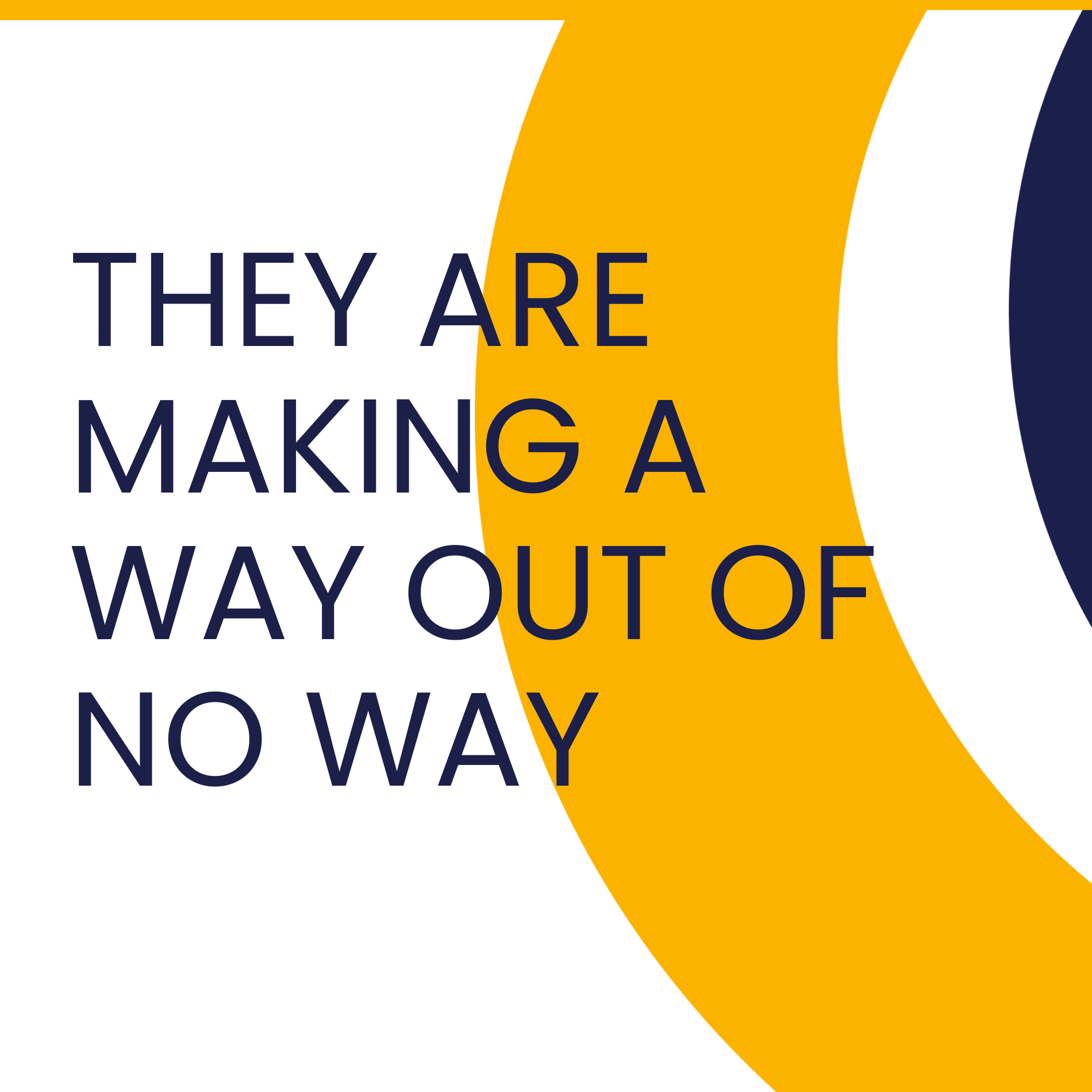

We recently surveyed 80
Houston area organizations, in addition to conducting focus groups and interviews.
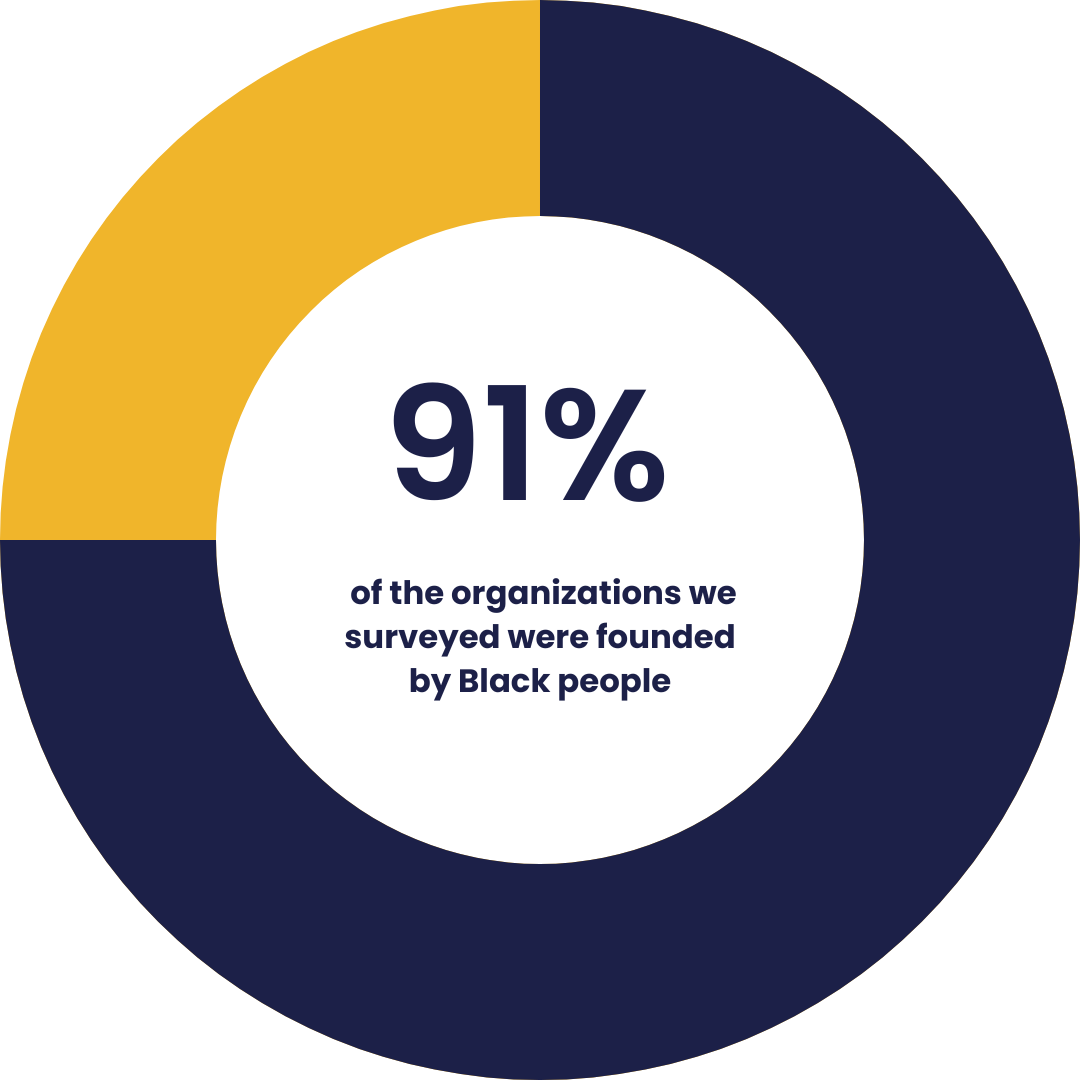


The top needs addressed by the respondents were education, healthcare, and employment followed by homelessness. These organizations are likely pursuing the same funding sources, even if the nature of their programming differs.
There is an opportunity to pursue new resources for these top areas by turning attention and awareness to the least explored funding streams.

“I have always sought to create programs that involve African Americans in Houston. I was born and raised in Houston and the well-being of African Americans in the city is always a part of my consciousness.”
“Sometimes I feel like I have 50,000 needs that my organization has to address on any given day, and we’re only getting funding for one of them.”

More than 90% of the organizations said they are fulfilling complex or challenging needs for their clients.
This is consistent with what we heard from folks in focus groups and interviews.
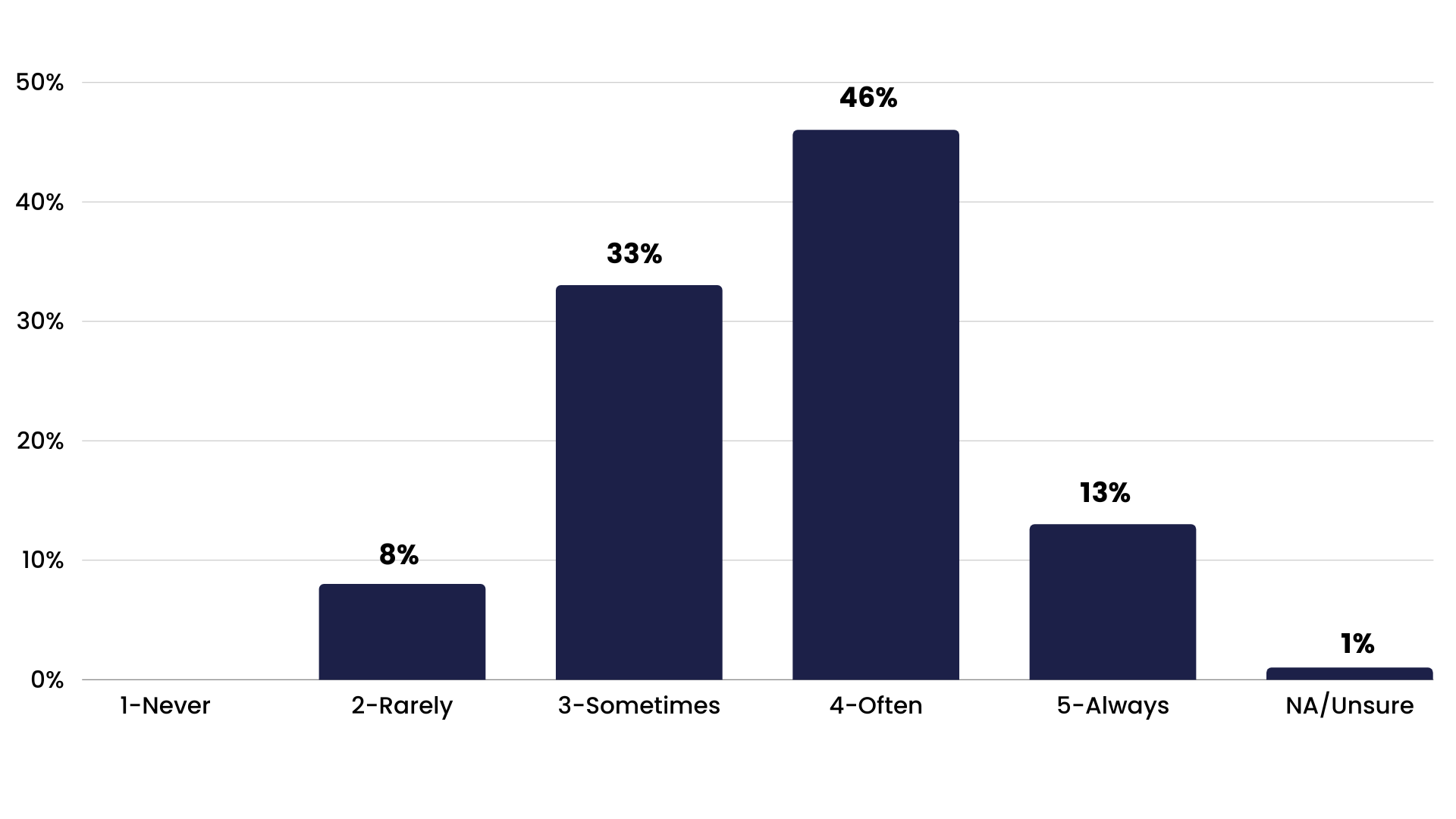
Graph: How Frequently do Black-led Houston area organizations surveyed serve complex and challenging needs in their community?
“I want to be resourced with buy-in with more thoughtful processes instead of reactionary changes and results. Less band aids and more root causes addressed.”
Houston’s Black–led organizations describing similar struggle
Of the organizations we surveyed:
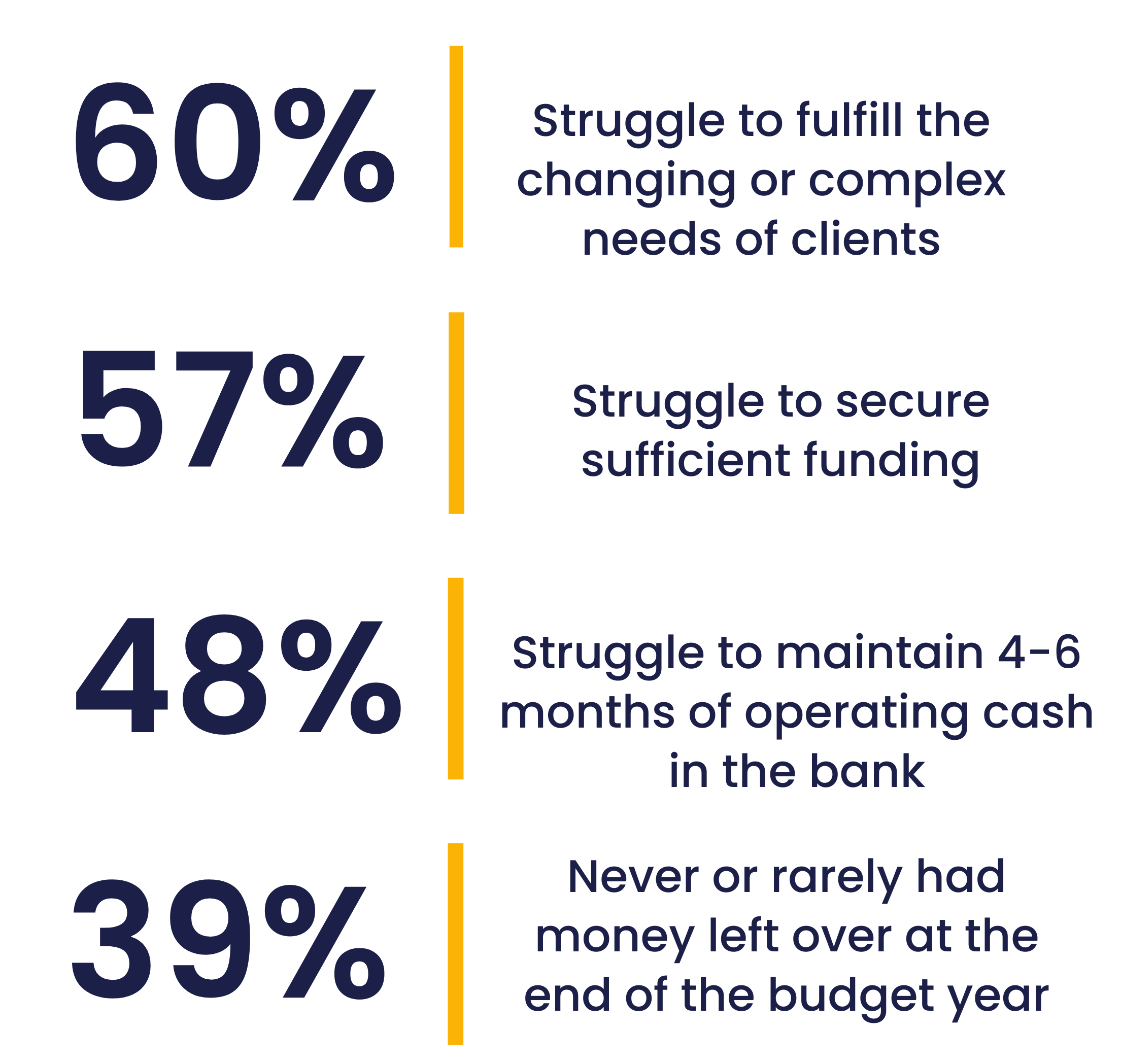
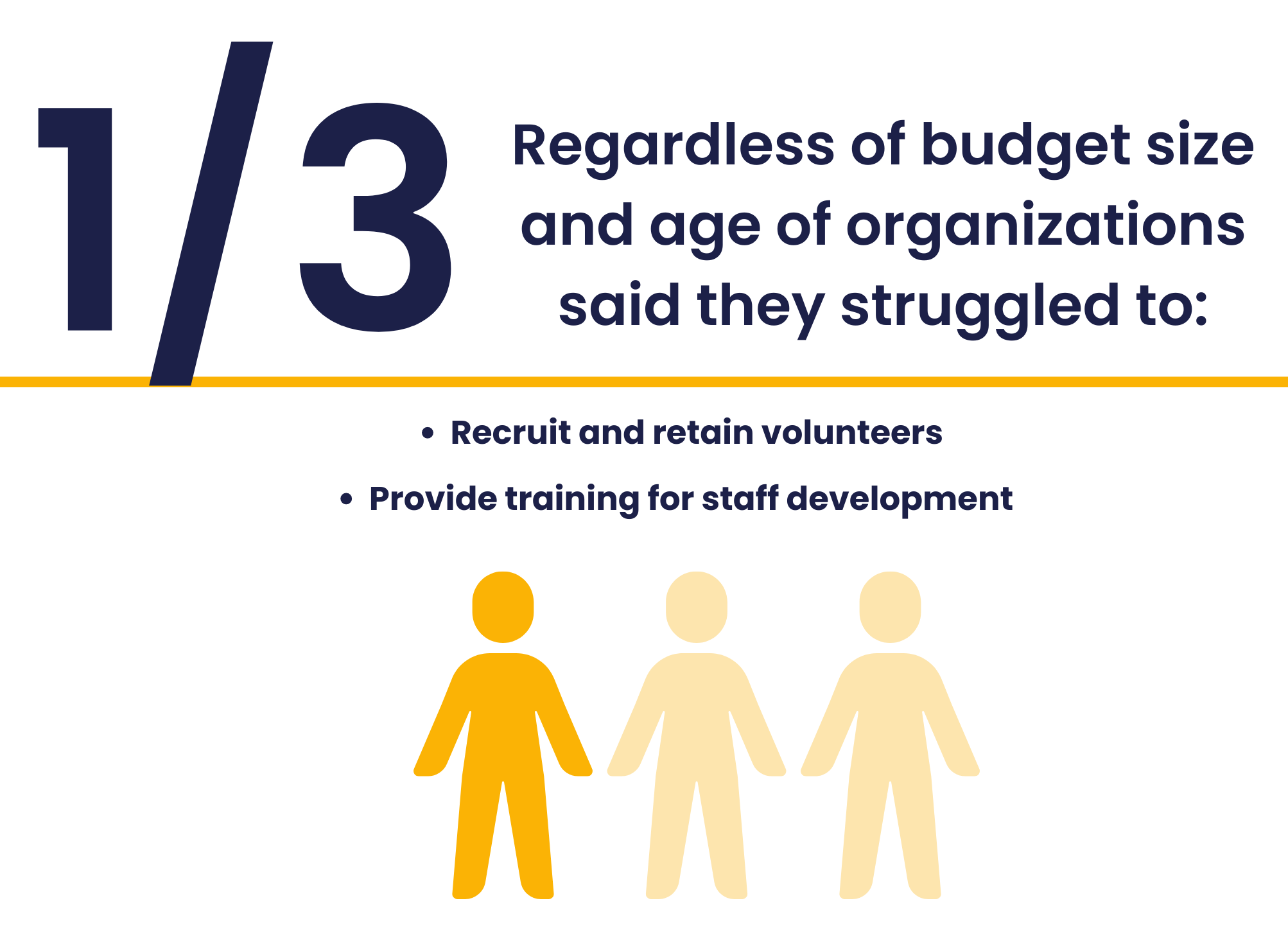
“We have what we have because there’s been a lack of investment in Black visionaries and entrepreneurs. Many of the social problems that continue to exist in Black communities have had generational cycles and could have been disrupted. If there would’ve been the kind of investment we see in white organizations and leaders, many of these social problems would be sunsetting. We would’ve seen a true Renaissance. The lack of investment in Black entrepreneurs and visionaries means we miss an opportunity to reimagine our world and society in a truly holistic and long-term way.”
Fewer than 4% of our survey respondents were startup organizations (operating for >1 year). This didn’t surprise us because we are learning that there is a lack of funding for innovation and start-up funding for Black-led organizations.
Start-up mode is also a very insecure place to be because they begin with little to no operational funding. Organizations with less than $50,000 in annual budget struggle to survive past 5 years.
Black-led organizations are faced to choose between remaining nimble and led by the needs of their community or focus on learning to play the funder game and jump through the right hoops.
“I need people to understand I [do this alone] and need people to execute because me executing is taking time away from something else.”
Resources create the space (i.e. time) necessary to build infrastructure, relationships and awareness.
We asked Houston area Black-led organizations what they would do if they had 30% more in their budget.
“Fund [Black-led organizations] in ways that create self- sufficiency, agency, autonomy and allow initiatives to create “a buffet of opportunities.”
Priorities for surveyed Black-led organizations, if they had more money:
■ General Enhancement/Capacity Increase
■ Professional Development
■ Staffing (more staff), Increased Wages, Offer (more/better) Beenfits
Capacity Desert
Black-led organizations want to grow their capacity. To meet the need, the region would benefit from a capacity-building organization with a strong understanding of working with Black-led organizations of all sizes and formations.
The local market currently includes:
- Rice University’s Center for Philanthropy & Nonprofit Leadership
- The George Foundation’s Excellence for Nonprofit Leadership
- United Way of Greater Houston’s Nonprofit Connection
More opportunities should be offered that are cutting-edge, geographically accessible, affordable, and with sessions outside of the traditional business day.
Without a more robust capacity-building culture and strong relationships with funders, many Black-led organizations will remain excluded from traditional funding opportunities.
Overall, respondents shared that it can be hard to break through to funders if you don’t already have connections to them. As we learned from our funder survey, not having these connections can put Black-led organizations at a disadvantage if they do not have the “word-of-mouth” networks that funders still rely heavily on for information.
How the funders we surveyed find organizations to support:
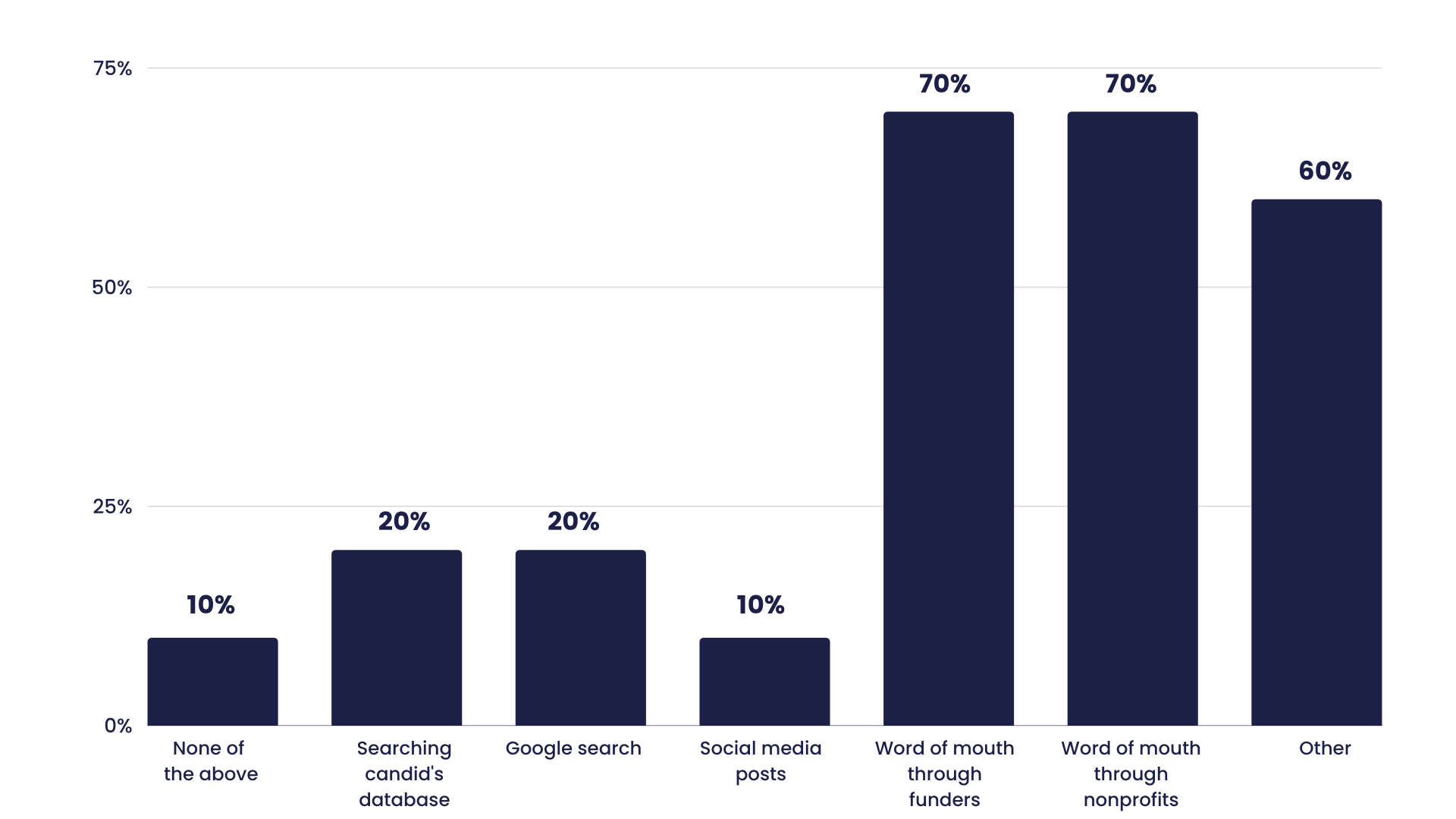
Other responses: included subject matter experts, community news, conferences, resource guides (e.g., GHCF Giving Guide of Houston Black-led Organizations)
